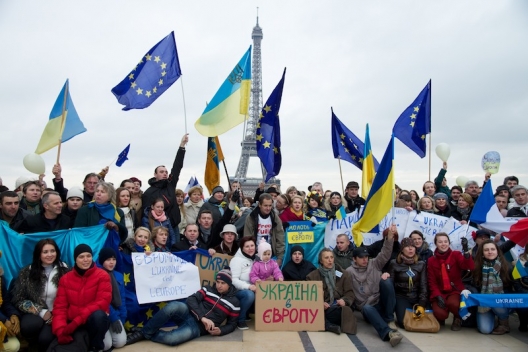 After [Vladimir] Putin succeeded Boris Yeltsin as President of the Russian Federation, he followed three strategic goals, which he continues to pursue : an end to post-Soviet Russia’s strategic submission to the West; reestablishment of sovereignty over most of the ex-Soviet republics, or at least enough control over them to stop NATO’s eastward expansion; and gradual recovery of Russia’s status as a global power.
After [Vladimir] Putin succeeded Boris Yeltsin as President of the Russian Federation, he followed three strategic goals, which he continues to pursue : an end to post-Soviet Russia’s strategic submission to the West; reestablishment of sovereignty over most of the ex-Soviet republics, or at least enough control over them to stop NATO’s eastward expansion; and gradual recovery of Russia’s status as a global power.
These goals were not to be enforced by the Red Army, but by Russia’s economic potential, especially a strategic energy policy supported by vast oil and natural-gas reserves. This would require securing control over these resources. It would also require establishing new export routes to Europe that, by circumventing Ukraine, would make the country vulnerable to blackmail, because a cutoff of gas supplies to it would no longer trouble Europe. The ultimate goal would be to regain Russian control over the Ukrainian pipeline network. At that point, Ukraine could be coaxed into joining Putin’s “Eurasian Union,” a Russian alternative to the EU aimed at keeping ex-Soviet countries within Russia’s sphere of influence. . . .
Putin’s ultimate goal – a far-reaching revision of the post-Cold War strategic order in Europe – has become increasingly clear as Russia has moved closer to achieving it. But neither the EU nor the US has been willing or able (so far) to formulate an effective response.
The EU’s Ukraine initiative was supposed to be an attempt to provide such an answer. Europe played for high stakes, because if Ukraine does lose its independence in one way or another, European security will be at risk – a risk nowhere more keenly felt than in Poland and the Baltic states. With Yanukovych’s rejection of the association agreement, the EU has lost its bet.
Putin cannot be faulted for skillfully pursuing his interpretation of Russian interests. The blame for the outcome in Ukraine falls squarely on the EU’s leaders, who represented European interests so badly. Grand gestures and paper-thin statements cannot mask Europe’s neglect of its own strategic interests, which will not be helpful in its relations with Russia. If Europeans want to change this, they will have to invest in their interests and devise an effective approach to ensure that these investments pay off.
This is true not only with respect to Ukraine. At the end of 2013, Russian diplomacy can look back on a year of impressive successes: Syria, the interim nuclear agreement with Iran, and now Ukraine’s rejection of Europe. Whether Europe’s leaders see the connections and understand the consequences remains a serious question. That fact alone gives rise to considerable concern.
Joschka Fischer was German Foreign Minister and Vice Chancellor from 1998-2005, a term marked by Germany’s strong support for NATO’s intervention in Kosovo in 1999, followed by its opposition to the war in Iraq. (via Real Clear World)
Image: Euromaidan demonstration in Paris, November 24, 2013 (photo: Artem Kononenko)
